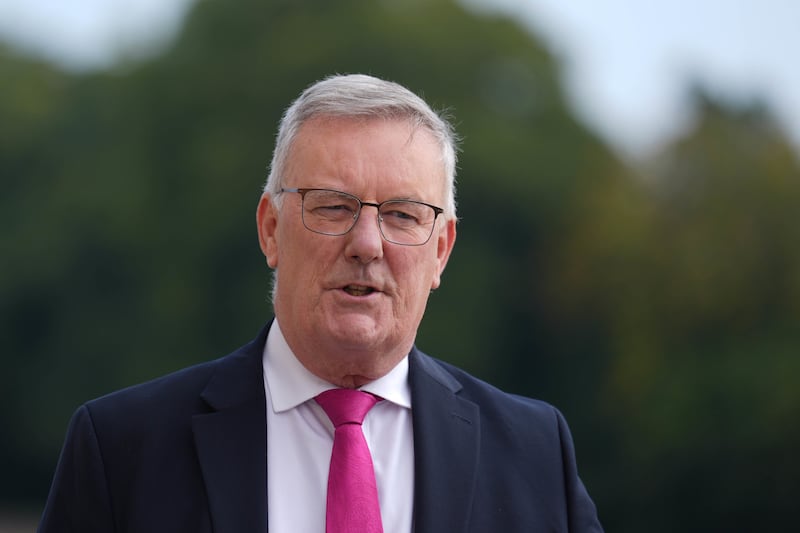THERE can be no doubt that Archbishop Noel Treanor made a significant impact on the life of the Catholic Church. Fourteen years as Bishop of Down and Connor would alone have ensured his place as an important figure in the 21st century Irish Church.
Yet, in a unique contribution cut prematurely short by his sudden death in Brussels on Sunday, his influence extended beyond these shores. Europe was always close to his heart, and he served the Church for more than 20 years in roles that while part-pastor, part-diplomat were fully informed by a desire to put Christian values on the agenda of European decision-makers.
- Overdue apology needs to mark a new approach by the Catholic Church - The Irish News viewOpens in new window
- Rallies show tide is turning in battle against racist extremists - The Irish News viewOpens in new window
- MI5 actions undermine public confidence in Kenova process - The Irish News viewOpens in new window
At the time of his death, aged 73, he was apostolic nuncio to the European Union – essentially the Vatican’s ambassador to the EU, to which Pope Francis appointed him in November 2022.
“We have lost a true man of dialogue,” said Bishop Mariano Crociata, president of COMECE, the Commission of the Bishops’ Conferences of the European Union. The Monaghan man, from the border parish of Tyholland, had joined the COMECE staff himself in 1989, becoming the organisation’s secretary general in 1993. Fostering cooperation and understanding between the governments, Churches and others in Europe was, he argued, a means of striving for the ‘common good’, that driving principle of Catholic social teaching.
Archbishop Treanor “laid the foundations for COMECE’s development, bringing the voice of faith to the heart of the Europe”, said Bishop Crociata.
In that European context, and as a Clogher priest, his appointment as Bishop of Down and Connor in February 2008 was therefore something of a surprise. The stain of clerical sex abuse was a dominant issue. While addressing that was a priority for the new bishop, he was also intent on reshaping the diocese’s ministry for the 21st century, particularly through developing what he called ‘co-responsibility’ between laity and clergy.
One visionary initiative was setting up the Living Church office and devising a diocesan plan; landmark conferences, including in the Waterfront Hall, pastoral councils and faith development programmes followed.

There were controversies too, notably over the refurbishment of the bishop’s house and offices at Lisbreen in north Belfast. Archbishop Treanor insisted the expenditure was justified as an investment for future generations. There was also a peculiar row with the former head of the Catholic Church’s safeguarding body.
Archbishop Treanor said he was leaving Down and Connor with a “heavy heart”, and with his passing, Ireland has lost a powerful and capable advocate in the heart of Europe.









